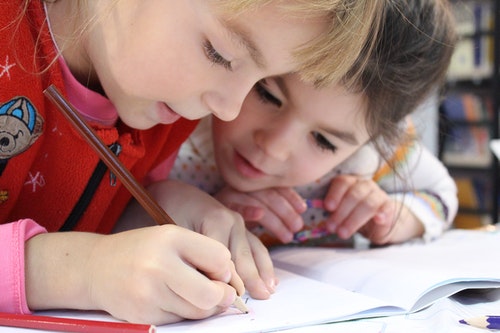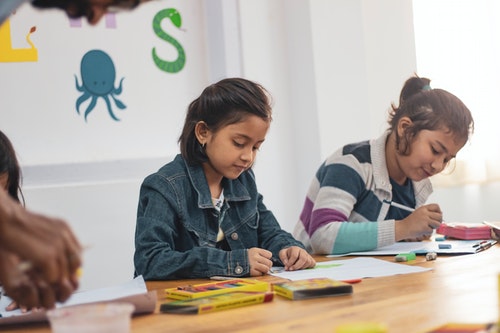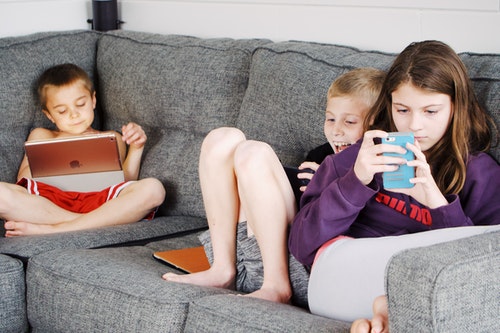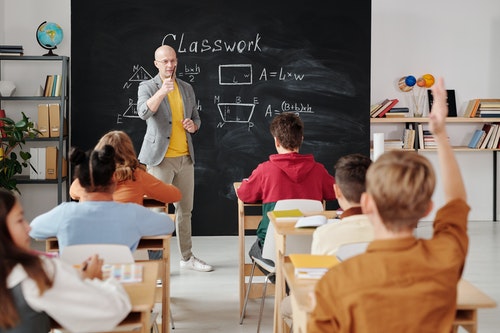We have seen so much craziness in the world since the first quarter of 2020 that might last us all a lifetime.

A new coronavirus came and sent everyone hiding at home for at least a couple of months. Many people have embraced the work-from-home setup, which used to earn a lot of raised eyebrows in the past. And every person is eagerly waiting for a vaccine that could immunize all of us against COVID-19 in the past year.
But more than the adults and their careers, do you know who has been suffering the most due to coronavirus? It’s the kids.
When the news spread like wildfire, the classes were still ongoing. The students had these exams and projects and presentations planned, and then the local government mandated everyone to stay at home and continue the classes online.
Online! It might not be a bother to homeschooled kids, but it’s a different story for those who chose to do regular schooling. The coronavirus robbed them of that choice. Even though this rule was for their benefit, this fact didn’t make the adjustment easier for all. To be honest, moms and dads didn’t have time to prepare themselves for it, and I knew a few whose mental health needs began to suffer, even leading to self harm, behavioral and mental health issues because of these significant yet sudden changes. Some of these kids are even showing some mental health symptoms. Because of the online classes, high school psychologists and other mental health services were challenged to address mental health support and mental health treatment of the students.
Now that we are nearing the fourth quarter of the year, and the classes have started again, things are only slightly better than before. I say ‘slightly’ because the kids can do sports and do other outdoor activities in some states, but not everyone can go to school districts five days a week.
In case you have forgotten the perks for kid’s mental health in regular schoolings, allow me to elaborate below.

Youngsters Need To Be Around Same-Aged Peers
New parents tend to think that their kids’ behavioral health and success depends on which school they enroll in. Well, that’s partly true. In reality, someone’s success hinges on their ability to form social interactions, develop social skills and build their network. And what’s a better way to do that than by letting kids be around same-aged peers?
Similarly, young people like to copy each other. If a kid sees their friend eating without the teacher’s help during lunch, they may try to do the same. If someone loves to share their toys and snacks to others, they may learn how to be generous, too.
Taking away the kids’ opportunity to hang out with their peers may not be good for kids’ mental health.

Kids Learn Survival Skills At School
Although young people seem to only learn about grammar and science and math and other subjects at public schools, they gain more than that through regular education.
You see, when a kid attends a class, the teacher’s rules become apparent to them. E.g., study hard, listen to your teacher, speak respectfully to everyone, etc. These are practical survival tips that they can use even when they turn into adults.
For instance, in the playground, kids figure out early that bullies and crybabies don’t make a lot of friends. Furthermore, compassion and sportsmanship win everyone’s hearts. Again, such ideas apply in the real world.
Though I can’t be 100% sure about it, it’s safe to say that children can’t learn any of that by taking online classes.

It Is Awful For Kids To Stay Cooped Up At Home
Before this so-called “new normal,” many parents successfully kept the little ones away from gadgets and video games for the basic reason of avoiding mental health issues. They had sports matches and martial arts training and recitals to occupy their days; their friends were always available to play with them, too. However, when the coronavirus arrived, all kids had been forbidden to leave their own houses, so there was only so much that moms and dads could do to keep them happy.
The online classes didn’t help with the health issues and complicated situation since they forced the children to be in front of the computer the entire day. Sure, they still had lectures and quizzes and everything, but they were mostly sitting in the same spot for hours. That could not be good for their physical and mental health in the long run which may lead to developing mental health issues and behavioral issues.

Children Require Stability And Consistency
Regular schooling is ideal for kids who need stability and consistency in their lives. They know that the teachers expect them to sit in class five days a week; they see the same faces of classmates and teachers daily. Even if there is a school break for two months, they will still be with each other after that.
Unfortunately, there is nothing stable or consistent with the new setup. Some get a combination of online and regular classes; others do online classes until a vaccine comes. It may have been okay if the government has simply stuck to a single educational system so that the kids won’t get mental and confused.
Final Thoughts
Since most vaccines are not mass-produced until January 2021, parents and children alike have no choice but to embrace online schooling instead of public school education for more than two weeks at the least. Despite that, once you get to decide later if your child will continue doing that or go back to regular schooling, do the latter – it’s fantastic for kids’ mental health. Plus, you’ll have access to mental health professionals, a school mental health counselor, and social workers, so it’s not just you providing care for your kid’s mental health in regular schooling.
FAQs